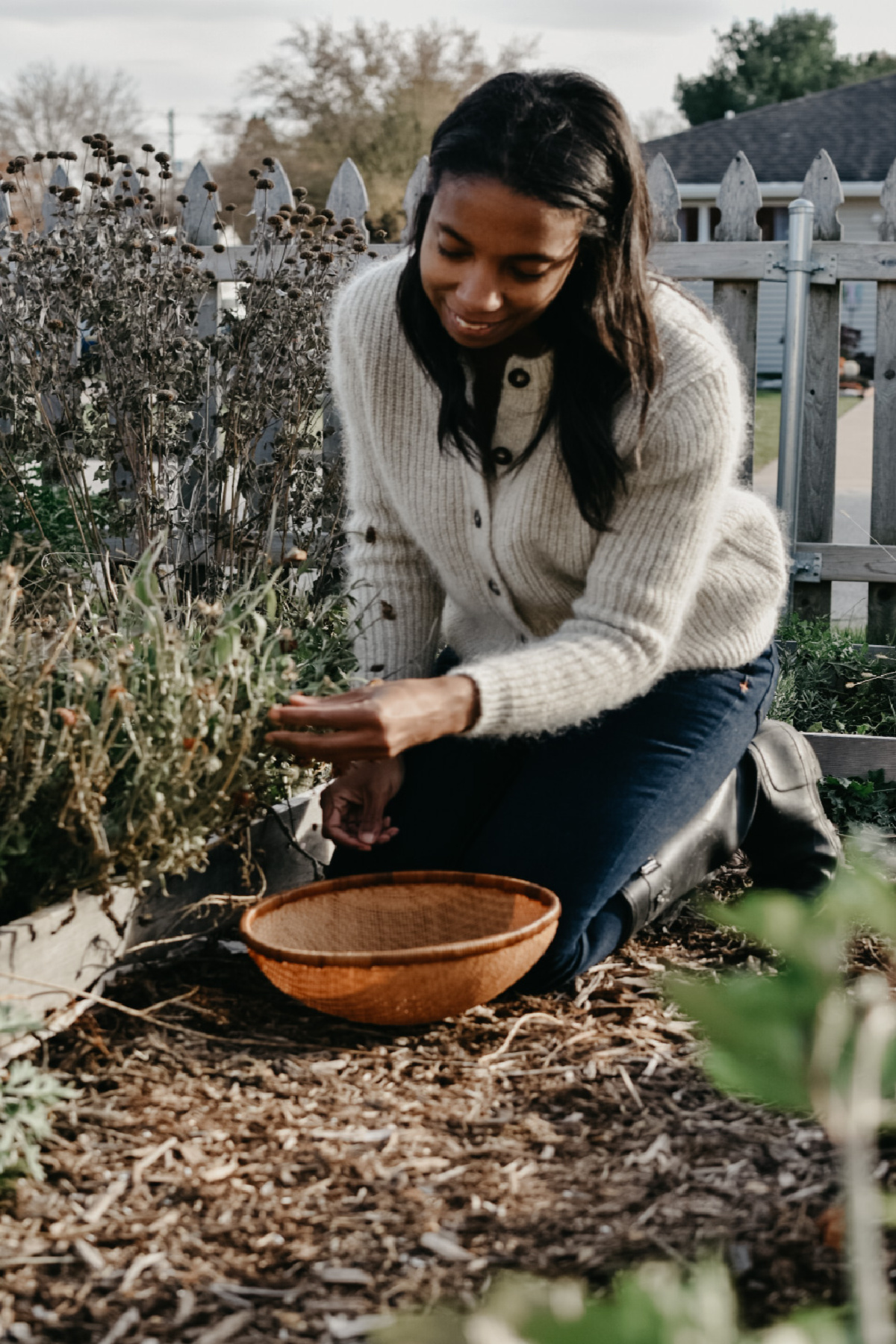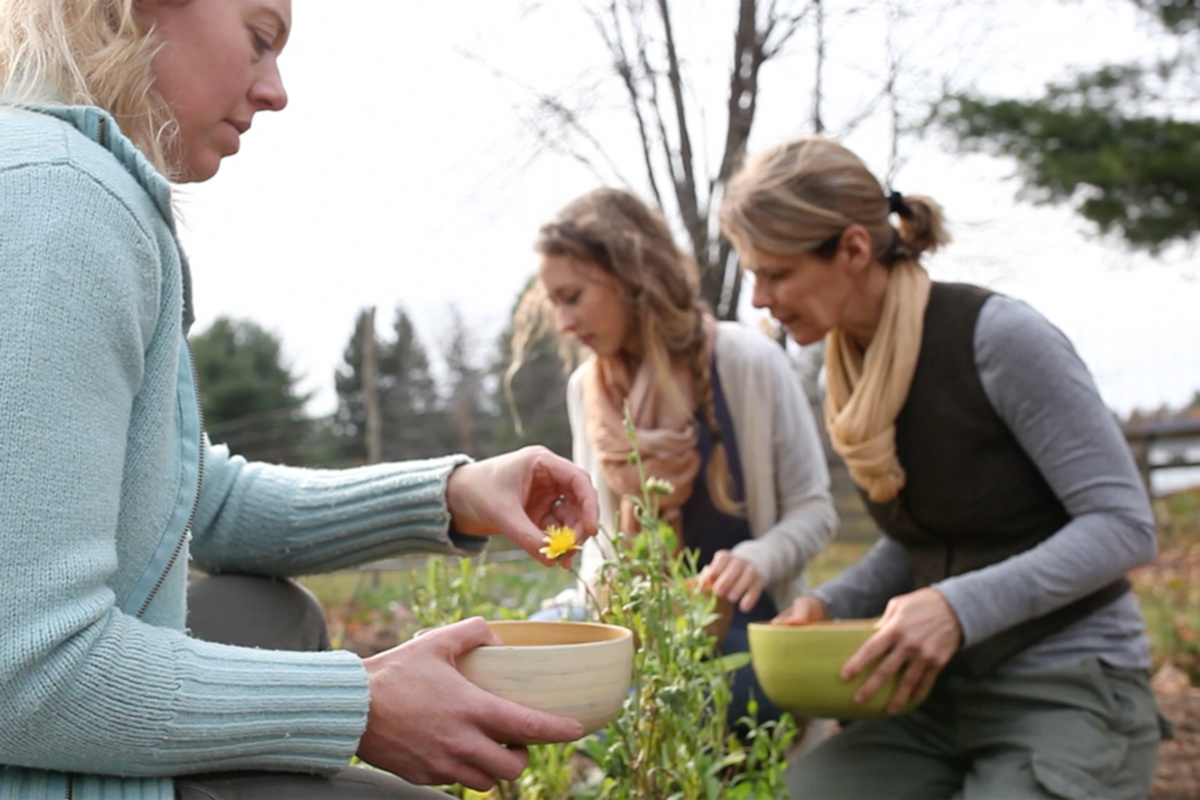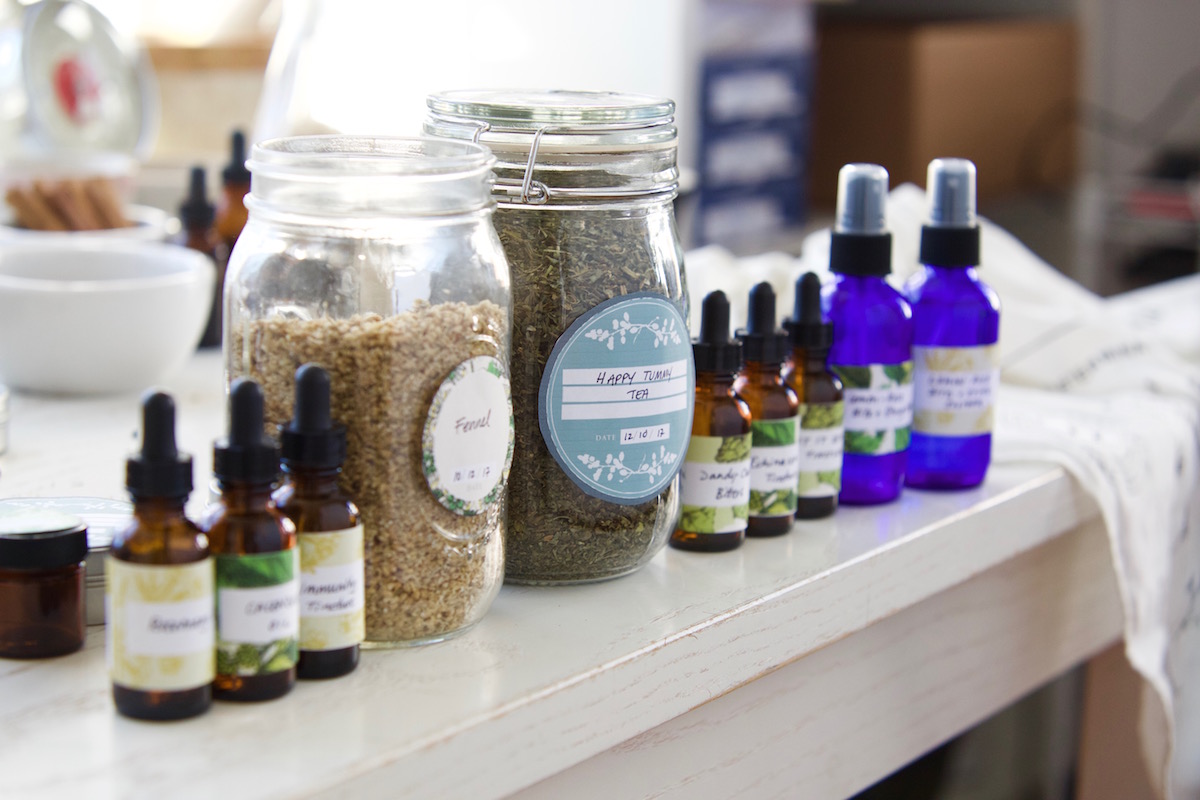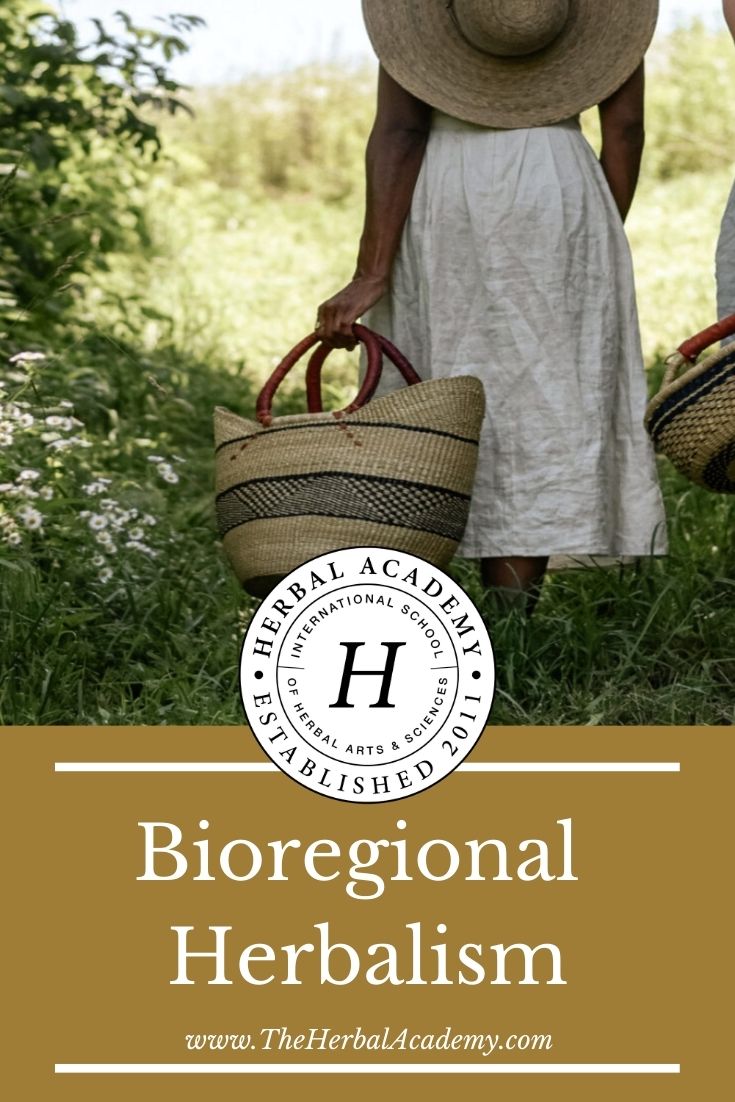Bioregional herbalism is the oldest form of herbal practice. Before global trade people used what was close at hand. This taught herbal practitioners to develop relationships with the plants in their region on a much deeper level—beyond clinical knowledge and using herbs to address specific problems. This deep, experiential knowledge gave people a profound sense of gratitude for, and connection with, the land and plants that they depended upon. The resurgence of a bioregional approach to herbalism is a response to the changing ethical implications of herbal practice in a global market.
As trade has expanded, so has our ability to learn about global herbal practices; we can study and even experience herbal practices from cultures and traditions around the world. This knowledge has added to the global materia medica, and given us access to many herbal allies we may not otherwise have known. Expansion of the herb market has also put a strain on plant populations, decreased the sustainability of herbal practice, and diminished our sense of connectedness to the source of our herbal allies. Bioregional herbalism is a practice that seeks to reconnect us with the roots of herbal practice.

What is Bioregional Herbalism?
Bioregional herbalism is an herbal practice that seeks to put the practitioner in greater connection to the natural world around them, and to improve the sustainability of herbalism by emphasizing the use of local herbs. Bioregional herbalism acknowledges that plants carry innate wisdom of how to best live in their surroundings, and have come to belong to a certain bioregion through years of adaptation. By using plants from our immediate environment, we develop a greater connection to the land we live on and an understanding of our place in the web of life (Slattery, 2019).
How Do You Practice Bioregional Herbalism?
In addition to the goal of reestablishing a connection between people and the planet, through the use of local plants in herbal practice, bioregional herbalism is a commitment to ecologically ethical choices. This applies to the herbs and herbal supplements we purchase from outside of our locality. The bioregional herbalist is one who looks first to the plants that thrive locally for allyship, moving outside those readily available herbs only when there is an absolute need. (Peterson & Miller, 2017).
This doesn’t mean that a bioregional herbalist never uses an herb or herbal supplement that doesn’t grow in their region. It does mean that they will consider how far plants and materials will travel to them, and from where and by what means that herb or herbal supplement arrived. A bioregional herbalist also considers how their choices impact the people and environment of plants procured from afar.

What Bioregional Herbalism Means for Humans
Bioregional herbalism requires that we listen, observe, and embrace learning hands-on. It challenges us to go beyond book knowledge and rote memorization. A bioregional herbalist seeks to gain a deep understanding of plant allies, rather than only learning which herb is useful for which ailment. This deeper knowledge of the plants around us increases our sense of responsibility to the plants and the planet.
If you can’t grow, forage, or purchase from local sources with sustainable practices, can you find companies that are striving to uphold those same ideals when working with herbs in other localities? Supporting small conscientious businesses enhances diversity in the herbal market, strengthens herbal networks, and boosts environmental sustainability (Wirthman, 2017).
What Bioregional Herbalism Means for Plants
The demand for herbal supplements is increasing with the growth of consumer interest and commercial trade. An increase in demand, along with the stress put on plant populations by habitat loss, all have negative impacts on plant populations worldwide. In 2002, the Food and Agriculture Organization of the United Nations published a study on the impact of cultivating and gathering medicinal plants. The results of this study estimated that over 4,000 medicinal and aromatic plant species are threatened worldwide (Schippmann et al., 2002). Plants that are limited to very specific conditions or locations generally cannot supply the whole world indefinitely. The resource may eventually be exhausted. Even if it seems that the plant population is abundant where it occurs, commercial pressure can deplete a population, making it more vulnerable to unanticipated natural conditions or a natural or human-caused disaster.
Refocusing our herbal practice on local herbs takes the strain off of sought-after and over-harvested plant populations globally. As we grow our connection to the plants in our surroundings, our lives become intertwined with theirs. It is difficult to see the impact that you are having on a plant population that is halfway around the world. However, if you are in a close and continuous relationship with the plants in your area you will notice the changes in their populations from year to year. You may also be able to notice whether their habitat is threatened.
When we recognize and take responsibility for the impact herbal practice has on our herbal allies, we can be in a stewardship relationship with the plants, and make choices that show the reciprocation of our allyship.

What Bioregional Herbalism Means for the Planet
The herbal industry is growing every day; in a 2017 study, 35% of people surveyed said that they take some form of an herbal supplement (Rashrash et al., 2017). In order for an herbal supplement to show up in a store, online, or brick & mortar, raw herbs are shipped to a producer, who processes and packages the herbs, then ships them to a wholesale warehouse, where they then are shipped to stores, practitioners, and individuals. There is a lot of energy use in the process of production (McElroy, 2011). Bioregional herbalism takes responsibility for the ecological impact of modern herbal practice.
By decentering convenience and instead centering the ecological implications of herbal practice, bioregional herbalists are able to make choices in commerce that align with the philosophy of remaining connected to place through the practice of herbalism. The choice to support small herbal businesses supports more sustainability and diversity in the herbal market. It also supports your local economy and small businesses. By fueling herbal commerce at a local level, we are able to root herbalism to local economies and solidify the future of local herbal practice through buying power.
In Conclusion,
The impact of practicing bioregional herbalism on plants, the planet, and the practitioner is deep and meaningful. This practice strengthens our connection to our immediate environment, and sense of responsibility to the earth, through our relationship to plants. Engaging in the local herb movement secures diversity, sustainability, and longevity of herbal practices in our communities. Bioregional herbalism isn’t about restricting herbal practice, but about opening up to the full possibility of our relationship with plants.

REFERENCES
McElroy, K. (2011). Herbal medicine practice: Future environmental impacts. Australian Journal of Herbal Medicine, 23(4). 164-167.
Peterson, G., & Miller, K. (2017, Feb 9). 194: Kate Miller on bioregional herbalism. The Urban Farm Podcast. Podcast retrieved from https://ift.tt/39ymLpx
Rashrash, M., Schommer, J. C., & Brown, L. M. (2017). Prevalence and predictors of herbal medicine use among adults in the United States. Journal of Patient Experience, 4(3), 108-113. https://doi.org/:10.1177/2374373517706612
Schippmann, U., Leaman, D., & Cunningham, A.B. (2002). Impact of cultivation and gathering of medicinal plants on biodiversity: Global trends and issues. Rome, Italy: Biodiversity and the Ecosystem Approach in Agriculture, Forestry and Fisheries. [Journal] Retrieved from https://ift.tt/39BonyB
Slattery, J. (2019). Becoming a bioregional herbalist – Part 2 [Blog]. Retrieved from https://ift.tt/3rLnXfg
Wirthman, L. (2017). 5 benefits of shopping locally on small business Saturday [Website]. Forbes. Retrieved from https://ift.tt/3dq8cFv
Source link
[ad_2]
source https://earn8online.com/index.php/239508/bioregional-herbalism-herbal-academy/

No comments:
Post a Comment